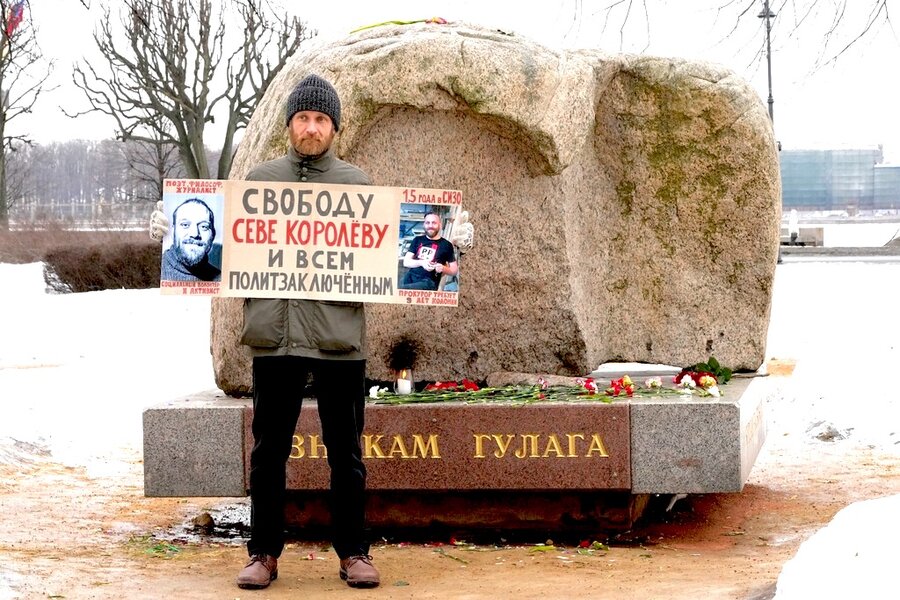The light Navalny left to Russia
Loading...
Recent protests in the United States, Israel, and Iran have been notable for being leaderless. Held together mainly by civic values spread on social media, they were able to draw greater attention to their message than a messianic leader. This is now the position in which Russia’s democratic movement finds itself following what appears to be the killing last week of leading opposition figure Alexei Navalny.
His exiled widow, Yulia Navalnaya, vows to carry forward the campaign against the regime of Vladimir Putin that Mr. Navalny began 15 years ago. It is too early to tell if many Russians will coalesce behind her. Yet like her husband, she reflects the vision of a Russia that someday embraces honest governance and a freedom from fear.
“Russia can be a normal European country,” she told the European Union this week. “A country where political conflicts are resolved through fair elections and not through prisons, poisons, and bullets. ... Full of dignity, justice, and love.” Earlier the same day, she posted a video on YouTube encouraging pro-democracy supporters to not be afraid.
Her words mirror her husband’s conviction that individual Russians have the capacity to lift up their country. “That’s his legacy, the raising of at least one generation of politically aware and kind people who understand that democracy, truth, freedom of speech is a good thing,” one of his campaign’s volunteers, Anna Kovalevskaya, told the Australian Broadcasting Corp.
He led by example as much as by organizational skill. “Perhaps [Mr. Navalny’s] most important political insight was his recognition of how his own moral leadership – the sacrifices of his health and freedom he was willing to make on behalf of his cause – could cut through the cynicism that so often dominates Russian political life,” wrote Dylan Myles-Primakoff, a Russia expert at the Atlantic Council.
Many public memorials to Mr. Navalny reflect the call to action that he inspired. Some people are “saying that hope died together with Navalny,” Nadya Tolokonnikova, a member of the exiled Russian punk rock band Pussy Riot, told The Associated Press during a protest outside the Russian Embassy in Berlin on Sunday. “But it seems to me that with [the death of] Navalny it wasn’t the hope that died, but rather responsibility was born.”
In his closing statement during his 2021 trial that led to his Siberian imprisonment, Mr. Navalny rooted the certainty of his democratic cause in a line from Jesus: “Blessed are those who hunger and thirst for righteousness, for they will be satisfied.” He saw those words as “more or less an instruction to activity,” or “participation in the battle between good and neutrality,” as he told Russian writer Boris Akunin.
Ms. Navalnaya urged European leaders to withhold recognition of Mr. Putin as Russia’s president after next month’s elections that are set up for his victory. But her most important suggestion was to “always distinguish” between Mr. Putin and the Russian people. They are the leaders more than any one person.







